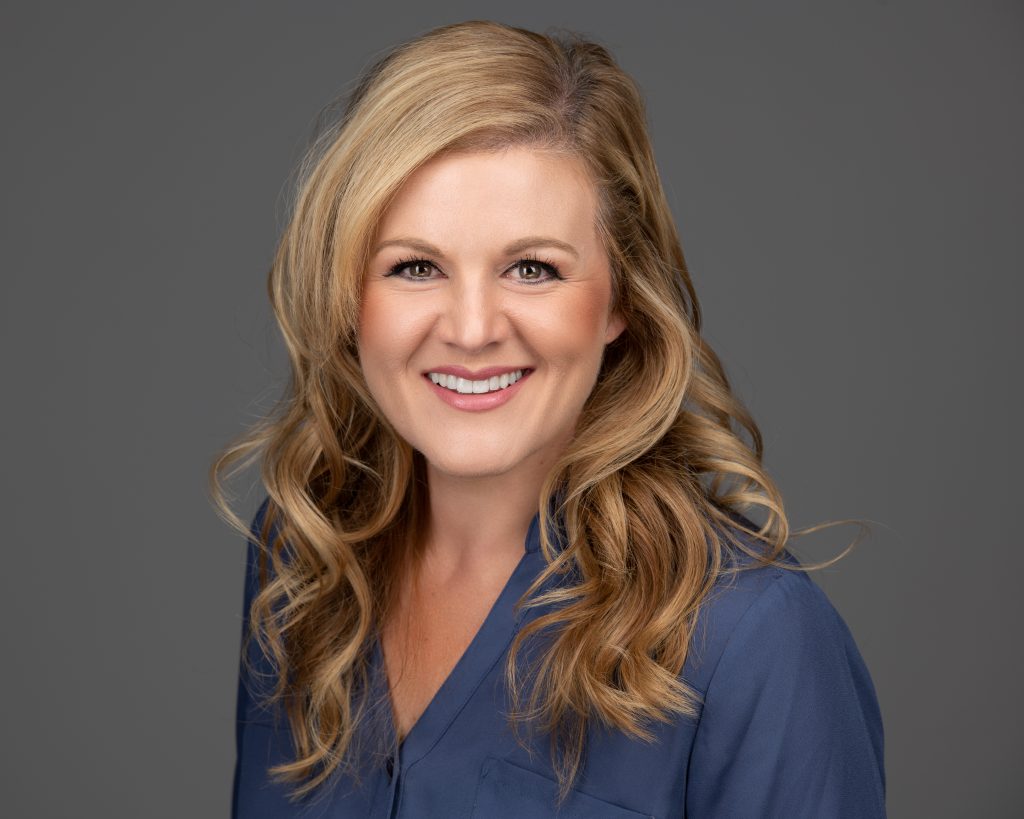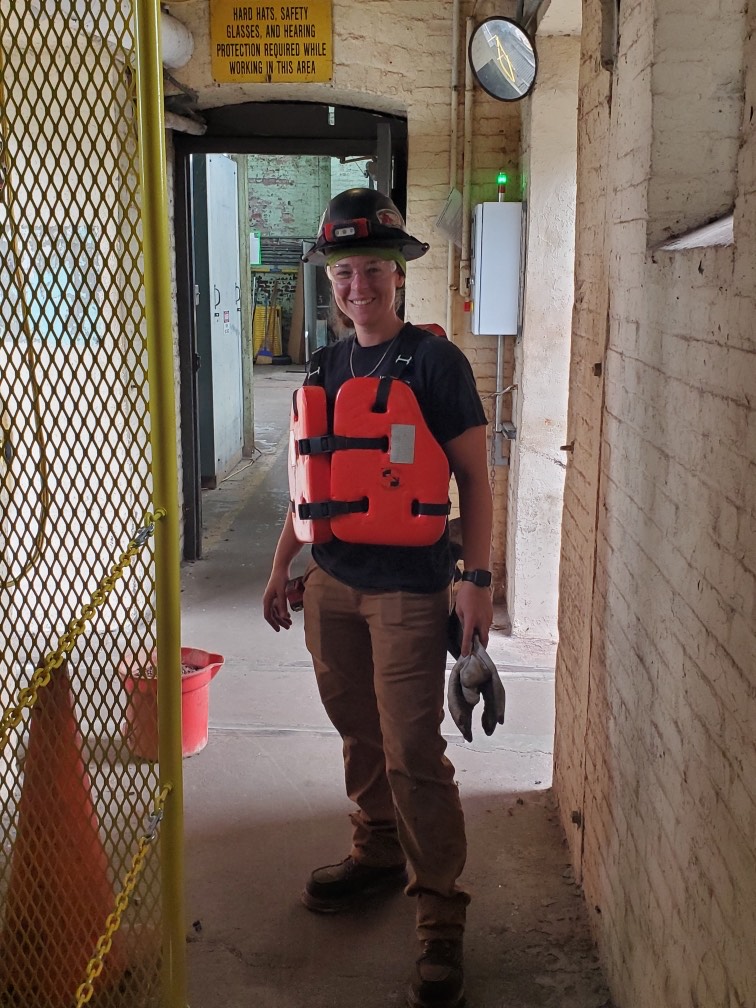The number of construction workers who are women reached an all-time high last year. More than 1 million women now work in the construction sector. The industry is working harder to recruit even more to join the ranks. One way to do that is to promote the success of both new and long-time workers.
The Keystone Contractor recently interviewed several women to learn what drew them into the field and to ask for their thoughts on what can be done to attract even more women to what a male-dominated industry has mostly been.
Stephanie Titus – Project Manager, Quandel Construction

What led you to join the construction industry?
Funny story. I literally took the scenic route in life to this career path. I worked for years in insurance, then banking. After the birth of my second child, I found myself looking for a job closer to home and found myself working for a site contractor and I LOVED IT! I worked there for several years, then took a spin with a residential builder before finding my home in commercial construction.
Describe your current role and duties?
I am a project manager specializing in healthcare construction. I am CHC certified (Certified Healthcare Constructor) through the American Hospital Association. My passion is creating new and innovative spaces for people to receive high-quality medical care in their own neighborhoods. I am involved in the project from response to a request for qualifications, through award, buyout, construction, and closeout.
Did you previously hold other positions or perform other duties?
I have held various positions over my 16 years in construction from administrative support to assistant project manager and now project manager.
What was your path into construction (college, trade school, apprenticeship, other)?
I do have some college education but when I attended Kutztown University, I was going to be a special education major. Thank God that didn’t pan out–while I have a heart for those with special needs, I don’t think that would have been a great long-term fit for me. I have since received a Construction Management Certification from Penn State University.
What doesn’t your educational training prepare you for?
There are a lot of reasons I wish I did have a degree in construction management. However, there are a ton of things I’ve learned in my 25 years in professional settings that I would not have learned in a classroom, and some that are just part of my DNA. I believe that to be a successful construction project manager, you need to have dogged determination, tenacity, a strong sense of urgency for the important work that needs to be done, and a desire to build a strong team and great relationships internally and with your clients, design teams, and trade partners. Some of your ability to be good at that comes from things you learn along the way. Some of it comes from who you are as a person, and what drives you!
What is the best part of your job?
Seeing the final product. Knowing that I had a hand in helping to build something that will serve a community, providing innovative spaces to receive high-quality care. Also, the people who I work with are the best people around! I wouldn’t want to work in any other industry.
Is there an aspect that you would like to see changed?
Diversity would be a huge benefit to our industry! I want to go to awards banquets and trade organization meetings and see diversity across the board. We need to help make construction a real career option for all ethnicities and genders!
What is the biggest challenge on the job?
Right now, getting the materials and equipment you need to build it out! That comes with a strong understanding of the market and current lead times and having strong relationships with specialty contractors you can partner with to get it done.
How or why did you choose your specialty?
Prior to health care construction, I worked in senior living construction (which I also have a passion for). At the time, the company I worked for had a need for a project manager in our healthcare division, so I made the jump. Healthcare construction is so specialized, not everyone can do it, not just anyone WANTS to do it. I look at what I GET TO DO every day and feel blessed. This career has allowed me to provide well for my family while I get to take pride in my career.
What can be done to encourage more women to join construction?
I think the first step is to let others know there is a place for them in this industry! It is a great place to build a career, support your family, and make a life! I am involved in mentorship programs in an effort to talk to middle school- and high school-aged kids about career options. I also serve on the board of the Professional Women in Construction–Philadelphia Chapter, which is a fantastic organization that supports and mentors women in the industry.

Skye Rachko – Journeyman Pipefitter with the local 524, McClure Company
What led you to join the construction industry?
Growing up I was always helping my father with small fixer-up projects around the house. When I was in the eighth grade, I was required to take a wood shop class and continued with that throughout the rest of my high school career. In 10th grade, I enrolled in the vocational program for electrical construction, and that’s when I knew I’d pursue a career in construction.
Describe your current role and duties?
I’m currently a journeyman in the Local 524 pipefitters union working for McClure Company. I am a UA-certified welder so that’s my main responsibility. When I am in-between welding projects, I work on preventative maintenance under McClure’s contracts, along with HVAC installs, plumbing, and pipe work.
What was your path into construction (college, trade school, apprenticeship, other)?
I was accepted into the pipefitter’s union in 2017 with the intention of specializing in HVAC. Given I had a background in electrical, I was already halfway there. I was an apprentice in Local 524’s program for five years, where I learned pipe fitting, plumbing, and welding. I grew a love for welding immediately and decided that’s what I wanted to work toward for the rest of my career.
What doesn’t your educational training prepare you for?
What education fails to prepare you for is quick thinking in the field. In my experience, I learned most of what I know on the job. Education gives you the building blocks, but experience is everything. I’ve been fortunate enough to work with some amazingly talented welders and technicians who have guided me to be able to do my job more efficiently.
What is the best part of your job?
The best part about my job is the people I work with. I love my job, but the people make it better. I’ve built solid relationships with the guys at my company and every day is like going to work with a father or brother.
What is the biggest challenge on the job?
The biggest challenge I faced on the job was gaining the respect of my male coworkers in the beginning. After working side-by-side with them and constantly feeling the need to prove myself, it didn’t take long for them to recognize I am just as capable as anyone else.
What can be done to encourage more women to join construction?
I feel like the number one thing discouraging women from this type of work is the strength-based challenges. As technology and equipment have come a long way, it’s rare that I face a time when I’m incapable of completing a task due to a lack of strength. When I am faced with this challenge, I know I can count on those working around me to lend a hand.

Rebecca Rodriquez
What led you to join the construction industry?
I never thought I would find myself in construction, mostly because of the typical stereotypes. I found a post on Indeed for a “Women’s Pre-Apprentice Carpenter Program”. Through some research and phone calls, I became more interested. More importantly, I was gaining confidence in my abilities to commit to this program, continue into a career, and transfer into the full carpentry apprenticeship.
I evaluated my finances to see if I was able to quit my job to make carpentry my career. With my prior experience in home renovation projects, combined with my mechanical skills used to maintain my vehicles, trainer, and race ATV, I felt I should be able to learn just about anything!
Halfway through the program, I was on break, talking to a fellow ATV rider about rebuilding my race quad for the next season. I felt someone looking over at me with a sideways grin, and he said, “You’re not a carpenter, you’re a millwright!” I said, “I don’t even know what a millwright does!” Well, later that night when I got home, I began to study: what is a millwright?
It was so inspiring; this was right up my alley! I love to be able to recognize the problem and the cause, then move into how we can fix it and get it working properly again. During this process, there is always thought on how to make the machine run more efficiently and safely, or if there is a way to make a future repair easier, I try to do that.
Also, I’m able to specialize in areas where smaller-frame people can excel. Being 5’4” and 130 pounds on a heavy industrial job site isn’t easy unless you can do the right job. I was inspired and spent the rest of my time learning about the field. I decided to finish the carpenters’ program, and after the entry test, I entered it into the millwrights program and decided that was the path for me.
Describe your current role and duties.
My current role is third-year millwright apprentice. I’m currently working with a local contractor where I’m teamed up with a journeyman to work under. I’ve done so many different types of millwright work with this company, it has kept me very well-rounded. Some jobs include unloading equipment from trucks and staging for upcoming jobs and outages, installing new equipment, repairing, and maintaining existing equipment, retrofitting and R&D projects, and precision alignment.
Did you previously hold other positions or perform other duties?
I did not have any official mechanical training. I’m not sure what sparked my love for machines. I played with Legos for hours on end and was heavy into school sports and all board sports. I just like being constantly active.
When I was 15, I was able to get my first dirt bike. My uncles grew up with bikes, but I never knew that side of them. My neighbors had a small dirt bike, and we were always together after school. It wasn’t long until I had the bike on a bucket in the garage, cleaning it with a toothbrush. I just wanted to work on it, and I knew how to make it shine so that’s what I did.
We moved out of that house and sold the bike because we didn’t have woods in the backyard anymore. At age 16, I was in a terrible car accident that put me in a wheelchair for four months. Two surgeries later my broken pelvis was just as good as new, and I was able to buy a car and start learning how to change my oil from my friends at school. I took great pride in the work I was learning–oil changes, fixing up small things on the car, and hanging out with other friends who were doing more involved work and hanging out with the other grease monkeys at school.
I still do all of my vehicle maintenance to this day, along with working on my ATV. I’m currently teaching myself how to rebuild a blown-up 450cc engine. Last year I replaced my truck’s entire front end myself on jack stands in my garage. I just learned how to do a real axle seal and wheel bearing on my truck as well. I learn how to fix things as I need to because I’d rather be doing the work if I can.
What doesn’t your educational training prepare you for?
There are many things that training doesn’t prepare you for.
The first is how to be a good human being. It is the easiest thing to do and still for some reason, it’s something we deal with every day. I’ve learned that everyone has bad days, but please, when you clock in at work, leave the home drama at the door. The same goes for the end of the day. Maybe you had a rough day, fought alignment all day, struggled to rig a piece, and caused damage–worst case being someone got hurt. It is so crucial to leave that at the job site. Go home and rest from work–that means your body and your mind.
The second is the ways of the field. The technique that is taught and the technique that is used out on site in so many ways are different, but very understandable because it is so hard to replicate what we experience in the field.
What is the best part of your job?
The best part of my job is when we get to do mind-blowing work. The plant maintenance has us come in because they don’t have the tooling or manpower for the job. We go in and lift incredible amounts of weight with barely any room along with the unbelievably tight clearances in usually some of the worst work conditions you can imagine. We get to work, take 15 minutes to eat a snack pack and drink a juice box, and throw a harness on to jump in a boom lift to get to the crane hook that is over top of a piece that weighs 50,000 lbs. Now you’re going to pick it up and put it on roller skates and just push it over in place? Just like that? It’s wild to me, and I love the mind-blowing statistics that we work around.
I also enjoy the guys I work with. It can feel as if I must prove myself every day, and that’s OK with me because I want to be the best. I want to have all the answers; I want to be able to be called upon and be able to do what needs to be done. They don’t treat me differently because I’m a woman. They are great and respectful because we can draw the line between joking and construction humor and know when to stop. I look forward to certain work partners and job sites because of the people. I am a people person and enjoy working with company reps. Being a construction worker and carrying on a professional conversation at the same time is a quality I hope will take me far in the field.
Is there an aspect that you would like to see changed?
Stop treating women differently. I’m sorry to the ones who think we should have special treatment but there is no reason for it. Being able to follow OSHA requirements is pretty easy. But the biggest thing is saying, “Hey, guys” — I promise you are not offensive. I take more offense when you say, “Hey, people.” Just saying.
What is the biggest challenge on the job?
My biggest challenge is getting the guys to listen to me. It’s a little frustrating, but I do understand I am an apprentice. I spend as much time as possible watching my partners and how they solve issues and use certain tools so that I understand how they work and can be used in more than one way. I started by voicing my opinion in my head. If it wasn’t a safety issue, I just stood back, watched, and thought “OK, what would I do here?” and wait and see if that is what the crew ends up doing. I’m always hands-on, but at that moment I am an apprentice, I am a body listening to what my superiors are telling me to do and how they want it. Recently some of my ideas have been used, and they worked well. I didn’t need any congratulations whatsoever. When my idea worked, I was so happy. That feeling of success is what drives me to keep doing better. I keep challenging myself daily; it’s the only way to progress.
How or why did you choose your specialty?
I wouldn’t consider myself specialized quite yet. Millwrights are so multi-craft it’s hard to dial in. I do enjoy precision and optical work, but I also like fabrication and welding. Also, there is a layout that I have spent many hours on. I don’t strive to be specialized until later in my career, but if you ask my boss, I specialize in small spaces!
What can be done to encourage more women to join construction?
I feel that trades need to be pushed in the school systems. If I knew what a millwright was in high school, I probably would have joined the program then. I found it by luck. Indeed, some may call it fate, a huge leap of faith. Now I sit here three years later in my own house with my dog cuddled up on the couch. It pains me to think about where I would be if I knew earlier what I know now. It can’t be portrayed as a women-friendly job because you do need to be tough out here. We need to spread the word in schools. Without trades, thriving life as we know it would be very different. Trades keep the world moving! I stand very proud knowing that some of the jobs we do have helped our customers serve the public with minimal interruptions because of our training and craftsmanship.
Check out other articles in the Winter 2023 issue of The Keystone Contractor!






